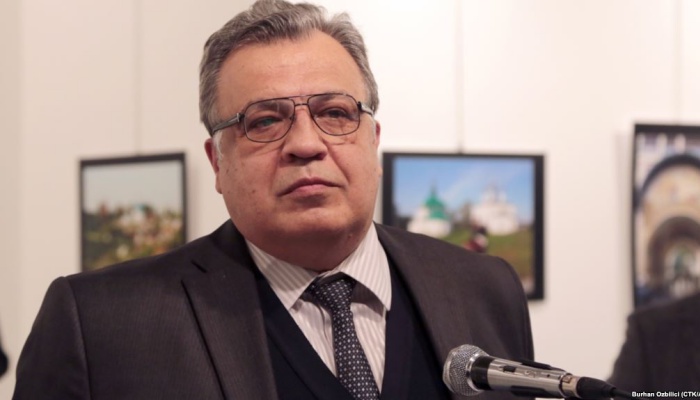One of the suspects in the December 2016 murder of Russian Ambassador to Turkey Andrei Karlov on Friday denied links to the faith-based Gülen movement and said he was connected to Menzil sect in Turkey.
According to the indictment, the leader of the faith-based Gülen movement, Fethullah Gülen, is the main suspect in the Karlov assassination in which the murderer, Mert Altıntaş, was killed at the scene.
One of 28 suspects in the case, police officer Hasan Tunç, who was friends with the assassin, said he is connected to the Menzil sect, the Aydınlık daily reported on Friday.
During a hearing at the Ankara 2nd High Criminal Court Tunç, who was dismissed from the police force, denied the allegations of Gülen links in the indictment, claiming that his initial testimony at the police station was taken under duress.
Tunç said he was introduced to the Menzil sect at Fırat University and that since then he has been committed to “Sheik Feyzettin” of the sect.
Furthermore, Tunç questioned why he has been profiled as a Gülenist despite not attending any of the movement’s meetings.
In December 2018 a Turkish court accepted an indictment in the December 2016 murder of Russian Ambassador Karlov in which 28 people are named, with US-based cleric Gülen the prime suspect.
Karlov was shot dead by an off-duty policeman while speaking at an Ankara exhibit opening in December 2016. The gunman, Mevlüt Mert Altıntaş, shouted “Allahu Akbar” and “Don’t forget Aleppo!” as he opened fire, apparently referring to Russia’s involvement in Syria. He was shot dead by police at the scene.
President Recep Tayyip Erdoğan has said the Gülen movement was behind the assassination, a charge the cleric has denied. Erdoğan also blames the preacher’s network for an attempted coup in July 2016.
Gülen, who has lived in self-imposed exile in the United States since 1999, has condemned the coup and denied any involvement in it.
Authorities charged Gülen and 27 others with attempting to overthrow the constitutional order, membership in a terrorist organization and premeditated murder, according to the state-run Anadolu news agency.
Prosecutors say Gülen’s organization was attempting to derail relations between Turkey and Russia with the killing. Ties between the two countries were already strained at the time of the assassination due to Turkey’s downing of a Russian warplane on the Turkish-Syrian border a year earlier.
Since Karlov’s murder, ties between Ankara and Moscow have seen steady improvement.
Altıntaş has become a “hero” among the some factions of the Syrian opposition in Idlib as posters bearing his image during the assassination were carried by crowds in a protest against Russian military attacks on the rebel-held Syrian town on Sept. 14.

